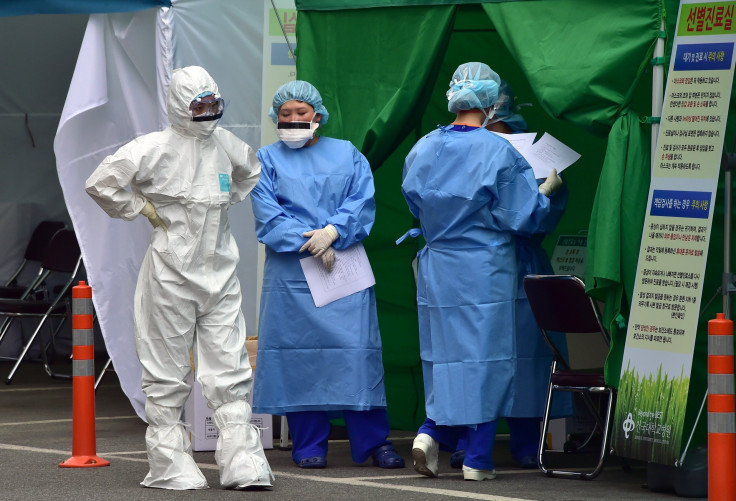MERS Outbreak Update: Officials May Declare Country MERS-Free Soon; Samsung Medical Center May Resume Work

A South Korean hospital that was at the center of an outbreak of the Middle East Respiratory Syndrome (MERS) in the country is set to resume operations on Monday even as officials debate on declaring the country MERS-free. No new cases of the disease have been reported in the country since July 4.
Nearly half of the 186 cases of MERS found in the country were traced to the Samsung Medical Center (SMC) in Seoul, which is run by the Samsung Group, according to Reuters. SMC, which was the last of 15 hospitals to partially close or shut down, had suspended most of its operations in the wake of the outbreak and stopped taking new patients for over a month. SMC closed down partially in mid-June after many of its patients and employees were diagnosed with the respiratory disease. The outbreak has so far killed 36 people in the country and led to the closure of schools and colleges across the country.
"The government has been examining MERS-related actions taken by the hospital so far and what plans it will implement after operational restriction have been lifted to prevent further problems," Kwon Deok-cheol, head of the central MERS task force, said, according to Yonhap.
South Korea is currently discussing with the World Health Organization the possibility of declaring the country MERS-free. The last patient to succumb to MERS was on July 10 and, as of Friday, about 155 people were in isolation, Yonhap reported. Of the people diagnosed with MERS, 134 people have recovered completely and have been discharged. Only 16 people are currently receiving treatment in the hospitals and of those four are unstable.
However, Yonhap reported that an official declaration calling the country MERS-free is expected only 28 days after the last MERS patient tests negative at least twice for the coronavirus. South Korea detected its first MERS case on May 20 in a 68-year-old man, who had returned to the country after visiting the Middle East in May. The first fatality in the country was reported on June 2.
The disease, which does not have a vaccine or a treatment yet, was first identified in 2012 in Saudi Arabia. It has so far claimed 530 lives globally and has a fatality rate of over 36 percent.
© Copyright IBTimes 2025. All rights reserved.





















